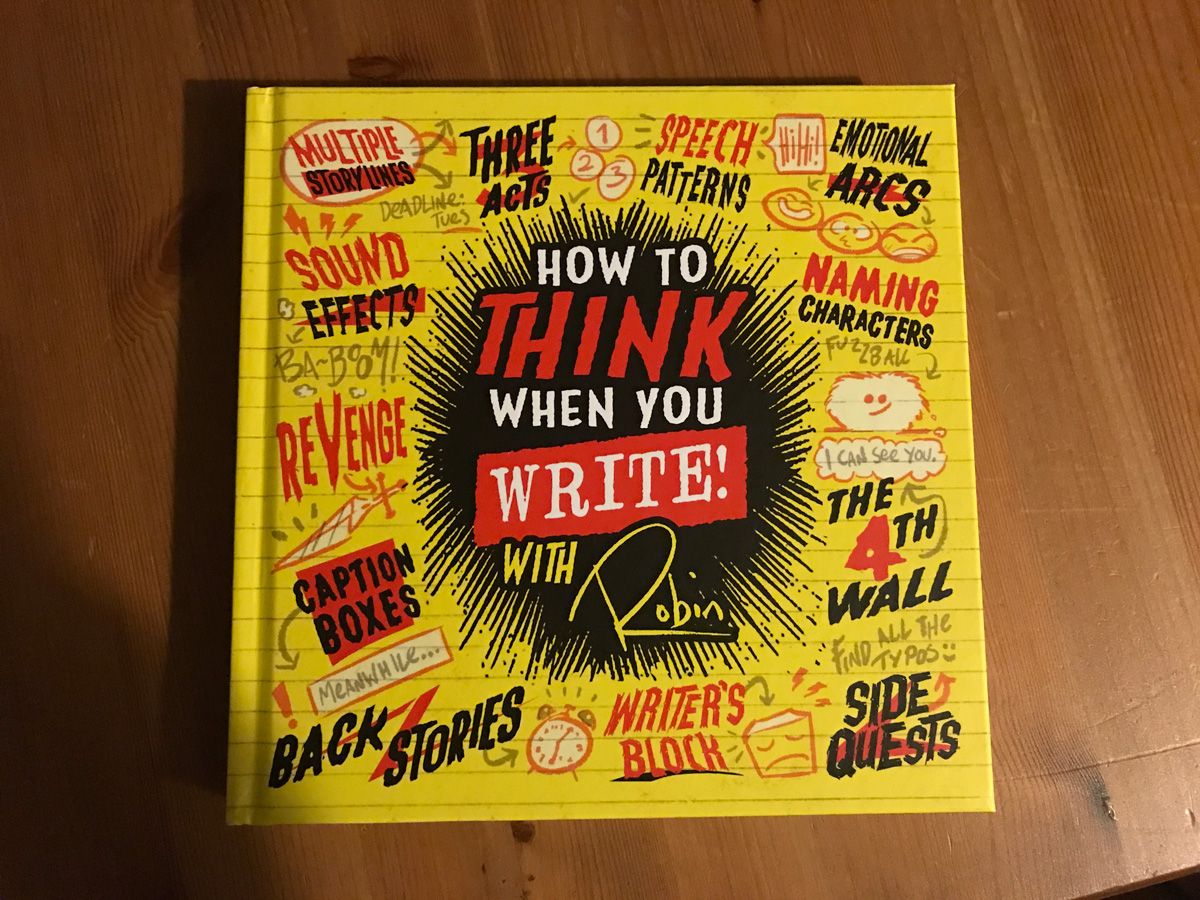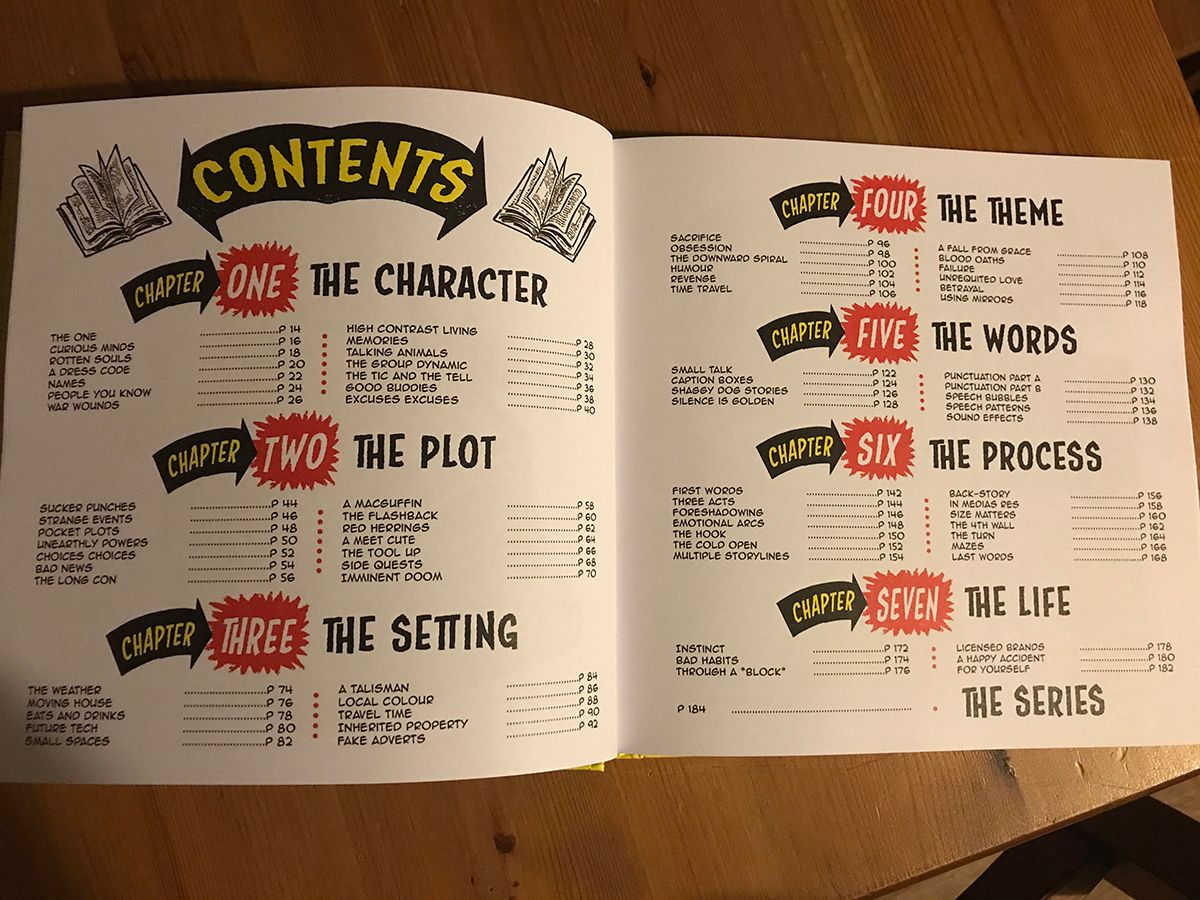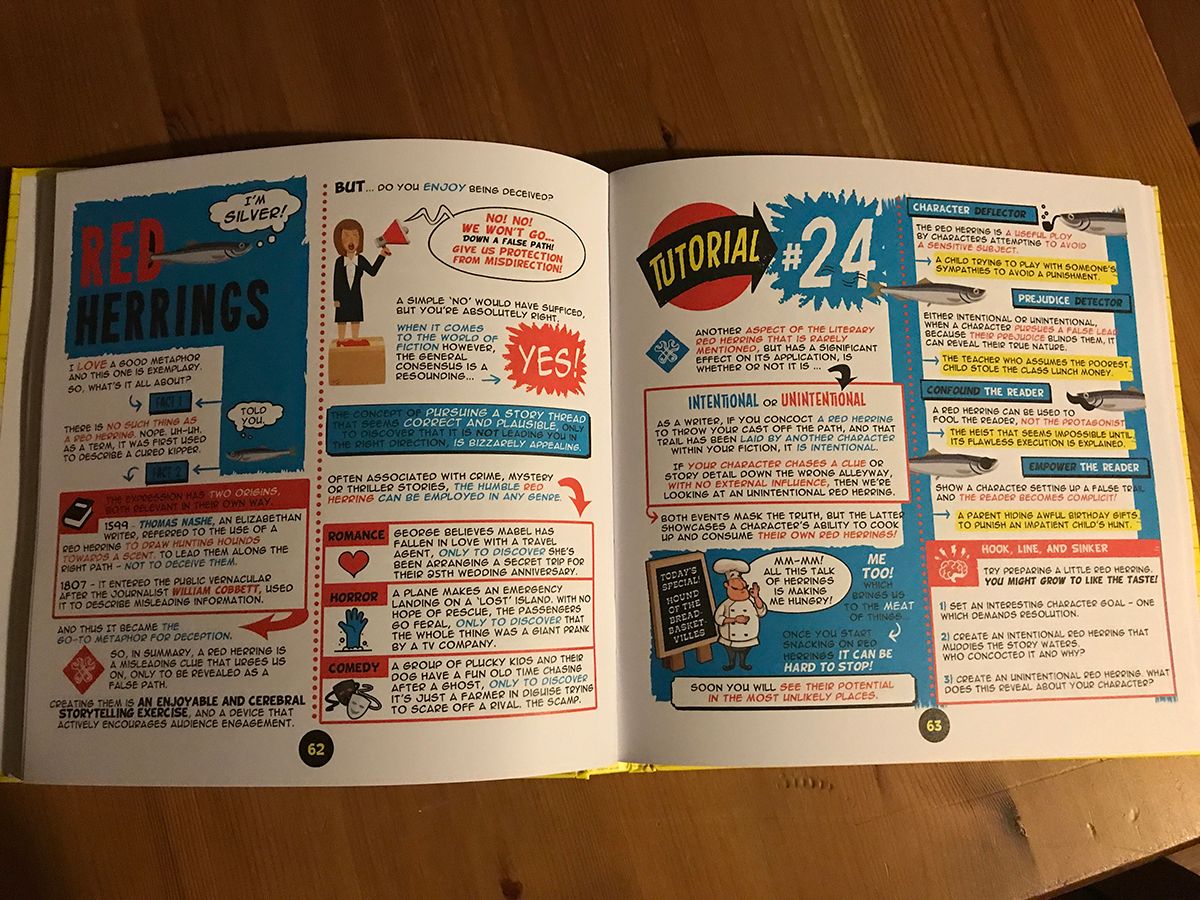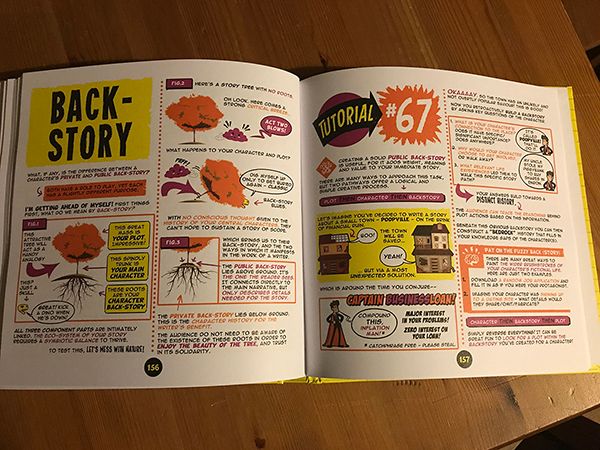The writing rather than the illustrating
-
Hello Folks,
I've been enjoying the courses on SVS Learn, really useful.
I'm looking more for input on the writing.
Any good links or suggestions?
Particularly love things in audio form so I can put them on while working.Thanks!
-
@anita-jean Hi!
Great question!
I was searching for a resource about writing picture books for some time now. And almost every teacher just keeps saying: "Read a ton of picture books." While I agree it's a valid advice, it doesn't help much with the writing it self. I also tried the course about writing picture books here on SVS, which was great but still not exactly what I was looking for.
So I decided to leave the "picture books" out of the question and started to focus solely on how to write good story. After all, picture books are stories. Short, yes, but they still need a proper story structure, well developed characters and everything else a good story requires. And that helped me a ton!
And that helped me a ton!
I'm not a native english speaker, so I do have to translate all of my writing into english once I wrote it down in my first language - and the more I write, the more I see: there's no magic formula for writing great picture books. Sometimes it's even not about the words really - it's all about the story. So every resource that teaches about how to craft a great story will help you with writing better picture books.
The next thing that improved my writing a lot was: breaking down successful (current) picture books. Not just reading them, but carefully go through the story, the text, the point of view used, the characters, how the story unfolds, the use of pagination, etc, etc. And try to see where the gold is hidden. Soon enough you'll start see the patterns, the methods that you can replicate in your own writing.
-
I started writing this year. I have not much prior experience. So I read two books about writing inn general, which are quite useful for me.
I read "Writing Fiction" by Janet Burroway, a book often used as a text book for beginner creative writing class in many universities. I found it very useful to get some terminology, and key concepts about writing.
Then I read "Bird by Bird" by Anne Lamott. I really enjoy her writing, and I feel the book is more about how to think when writing, about attitude, and perspective.
Now I am reading A Swim in a Pond in the Rain by George Saunders. He is analysing some classical Russian short stories in this book. It is a bit harder for me to read, so I take my time with this one.
I have a hard time reading books specifically about children's book writing. I might find them more useful when I know more about writing in general.
I think you can probably get all the 3 books in audio book format. But I found it is difficult to do something else while listening to these type of books, as it requires concentration to understand the concepts mentioned in the books.
I also listen to poetry podcast for writing inspirations. "On Being" podcast is one of my favourite.
-
Hi Anita, I started writing a couple of years ago. English is not my first language, so it is difficult. But the most interesting thing about writing is figuring out the fun part, to me, a large part of it is "the story arc".
Picture writing is the book that I found most helpful, in terms of learning story structure, and a get a good idea of PB writing. I'm very lucky that I had two PBs acquired at once by a big four publisher this year. I think this book has helped a lot.
Reading books other than PB helps. (Of course, reading PB helps too). I like listening to MG and YA, it only takes about a few hours for an audiobook, I can easily finish a few books when I am doing house chores ... and if you think about it, the topics YA and MG talk about are actually the frontier of PB ...
-
@anita-jean great thread, and you've gotten some good recommendations so far!
While it's a frustrating answer, the best answer to your question really is: read a ton of children's books! Picture books in particular are challenging to write, because a lot of story needs to fit concisely within 32 pages (or 13-15 spreads) ... and hold the attention of kids and their adult readers! Reading picture books will help you get a feel for the flow, the pacing, the characterization, what is told in words and what is told in pictures, etc.
But @mag and @xin-li also make legitimate points: sometimes you need a "how to" or picture book breakdown.
The books that have helped me the most as a picture book writer is the How to Write Children's Picture Book series by Eve Heidi Bine-Stock. She breaks down classic children's books to explain why they work. It's insight that you can then apply to your own writing. Volume 1 focuses on structure -- learning from classics like The Very Hungry Caterpillar, Where the Wild Things Are, Chicka Chicka Boom Boom, and more. Volume 2 focuses on words, scenes and story -- breaking down classics like Harry the Dirty Dog, Lilly's Purple Plastic Purse, Harold and the Purple Crayon, and more. Volume 3 is all about figures of speech and references Owen, Caps for Sale, Fish is Fish, and other perennial favorites.
Another great how-to is Writing Picture Books by Ann Whitford Paul, the revised and expanded edition.
All these are available on Kindle, which may have a read aloud feature depending on your device, but they are not available as audiobooks.
Another resource that has helped me up my writing game is SCBWI, especially attending webinars or watching recordings if I couldn't make them live. If you have a chance, catch a webinar or podcast by Pat Zietlow Miller, Linda Sue Park, or Vanessa Brantley Newton. They are bestselling children's book authors (Vanessa Brantley Newton is also an illustrator) and amazing presenters with a lot of good insights.
-
I am a big advocator of learning to write well first before worrying about writing for picture book. I am in the same line of thoughts with @mag. Sometimes, I actually intentional avoid reading books that are specific about children's book writing, or picture book writing. I rather read books about writing in general. I could not articulate why, it just works for me. It is like if I need to learn about color in painting, I rather look at Impressionist paintings, more than contemporary children's book illustrations.
I am also agreeing with @Melissa-Bailey-0 about reading tons of picture books and study them carefully, and agree with @idid listen to YA and MG novels on audio book - it really helps with the language (I am not Native English speaker either). My other source of learning to write better is actually listening podcasts such as This American Life, and 99% invisible. These podcasts are just so good when comes to storytelling.
-
I'm not sure if this is relevant but I had 'How to think when you Write' included in my Etherington Brothers 'How to think When you Draw' Kickstarter bundle.
I am dyslexic so I have never really read books unless forced to at school (seems a bit of a weird thing to say on a children's book forum I know) so I'm afraid I cannot recommend any good stories to read to help but this book is really visual and it's exactly what I need to be able to process information so could be good as a book to dip in and out of if you are short on time. I don't think the tutorials will give you much structured learning but worth a look.
I'm not 100% sure it can be bought on its own and not just through Kickstarter but Etherington Brothers put all of their tutorials that are in the books online for free on their blog, IG and twitter. The books are just all of them collated into one place. You can look through the posts to pick them out. Here is one of the tutorials on their blog. http://theetheringtonbrothers.blogspot.com/2020/04/how-to-think-when-you-write-emergent.html




-
@anita-jean This is a great thread! I'm taking notes! I agree with what the others wrote about SCBWI, and just wanted to underline the fact that everything I hear implies that writing children's books is much like writing poetry. Every word has to count, and there should be economy and interaction between the writing and the illustrations. They should fit together like a glove.
Since I don't live in the US, I don't have access to US bookstores or libraries, but lately I have been more proactive about ordering really good picture books to study. Along these lines, I watch every book breakdown I can find.
Kudos to those of you who are brave enough to write in a language that is not your native one! You might enjoy reading about how the author Jumpha Lahiri moved to Italy and learned to write in Italian. It's an inspiring story!
@xin-li I have been meaning to read that Anne Lamott book for years. Thanks for the reminder. Up to the top of the list it goes!
-
It's been a few years since I read this but I connected with it - The Zen of Writing by Ray Bradbury
Just like it can take years to master illustration, it can take years to become a good storyteller.
-
@kim-hunter The name of this book just drew me in. I have been thinking about reading Ray Bradbury´s writing for some years. Thank you for reminding me this. Ray Bradbury´s work has a huge influence on Shaun Tan´s work - which is one of my big influence.
-
Wow folks, thanks everyone for such considered replies. This is loads for me to get started working through, really fantastic thanks.
(Side note, Shaun Tan's work... swoon)